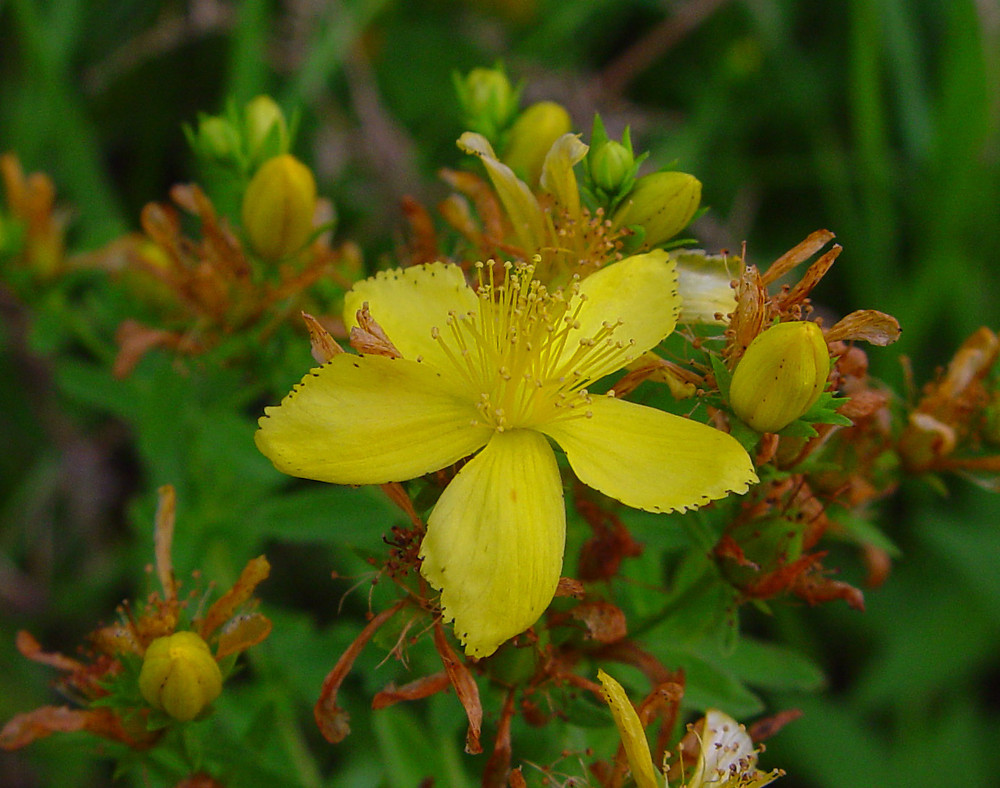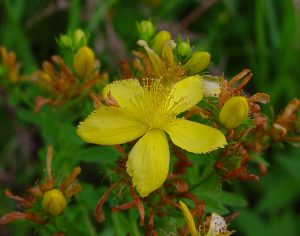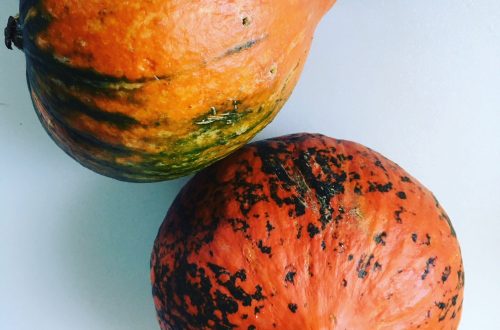
St. John’s Wort a Saint of an Herb.
With St. Patty’s day right around the corner it reminded me of another saint, this one being an herb, St. John’s Wort. St. John’s Wort has always been an herb I’ve heard of but was always turned off by the name. I mean who wants to try an herb with the name wort attached to it. But with my recent herbal studies and learning about what this herb is and the benefits of it, I became very excited to try it. So when I placed my herbal order with Foster Farm Botanicals I added St. John’s Wort to the list. Before I go into my personal experience with using St. John’s let me tell you all about this herb and why you might what to check it out too!
Hypericum perforatum otherwise known as St. John’s Wort is a yellow flowering perennial plant native to Europe, parts of Asia, Africa and the western part of the United States (1). It’s one of the plants belonging to the Hypericum family of which there are 400 species worldwide, and a member of the St. John’s Wort family, Hypericaceae (2). The plant has been used from the ancient Greeks to the Middle Ages with the origin of the name coming from the fact the plant blooms every year around the birthday of John the Baptist and “wort” an old English word for plant. The usage of the plant dates back before Christ. It was used by the Greeks to ward off evil spirits and bring good fortunes. The herb was also used to heal wounds, assist with nervous disorders, depression and viral infections.
In my eyes the best description of St. John’s Wort comes from Culpepper’s Complete Herbal book dated from the 1600s. Nicholas Culpepper describes the herb as;
“having upright, hard, round stalks two feet high with many branches from the sides to the tops of the plant with dark green leaves with small holes in every leaf, the yellow flowers of five leaves each, with many yellow heads in the middle, which being bruised do yield a reddish juice like blood; after which do come small round heads, which contain small blackish seed, smelling like rosin.“
He also described the virtues of the plant in these words;
“It is under the celestial sign Leo, and the dominion of the Sun. St. John’s Wort is aperative, detersive and diuretic…destroys worms; it is an excellent vulnerary plant…is commended against melancholy. Outwardly, it is of great service in bruises, contusions, and wounds especially in the nervous parts.”
The medicinal parts of the plant are the leaves and flowers with the qualities being warming, drying and relaxant. The smell and taste is very aromatic. St. John’s Wort has antiviral, vulnerary, inflammatory, exhilarant and nervine activities.
Here are some of the benefits of taking St. John’s:
-
Works as a anti-depressant,
-
Helps with inflammation.
-
Assists with menopause symptoms, such as moodiness.
-
Helps with acne or skin conditions.
-
Ideal for addressing herpes/cold sores/chickenpox/shingles
-
Good for stomach ulcers/ gastritis.
-
Helps to relieve stress.
-
Can be used as a salve or tincture for wounds for fast healing.
When I first tried St. John’s Wort I was blown away by how aromatic it smelled. Just smelling the loose leaves even before brewing immediately lifted my spirits. When brewed the leaves produced a light colored tea. The taste I found to be mild, floral and very pleasant, almost like a light chamomile taste. My first time drinking St. John’s was on its own. But the following day because I was experiencing a slight shingles flare up, I decided to put plantain (another anti-viral herb) in the mix and I drank this combo mixture every day for 3 days. With the anti-viral, anti-inflammatory properties of both St. John’s and Plantain, the creation proved to be a nice concoction for healing and I was feeling better in no time.
St. John’s can be made into tea, tinctures and elixirs. It can also be taken in capsule form. The fresh flowers can be infused in oil to make salves for topical healing.
Now there are some considerations when taking St. John’s Wort. According to the book Herbal Medicine for Beginners (3), “St. John’s Wort is so effective for improving liver function that it will cause many pharmaceuticals to be cleared from the body too quickly. Avoid St. John’s Wort when taking pharmaceuticals that require precise dosing.”
As always when using herbs for medicinal applications consult with an herbalist and/or holistic physician to make sure you’re taking the right herbs and in the right quantity.
Below are more links concerning St. John’s Wort, the benefits and side effects of using this great herb.
Peace & Wellness!






